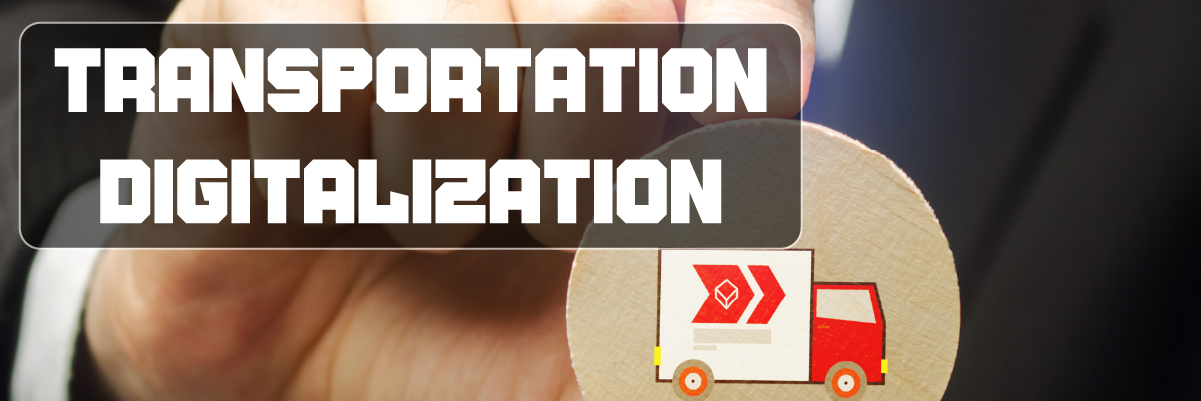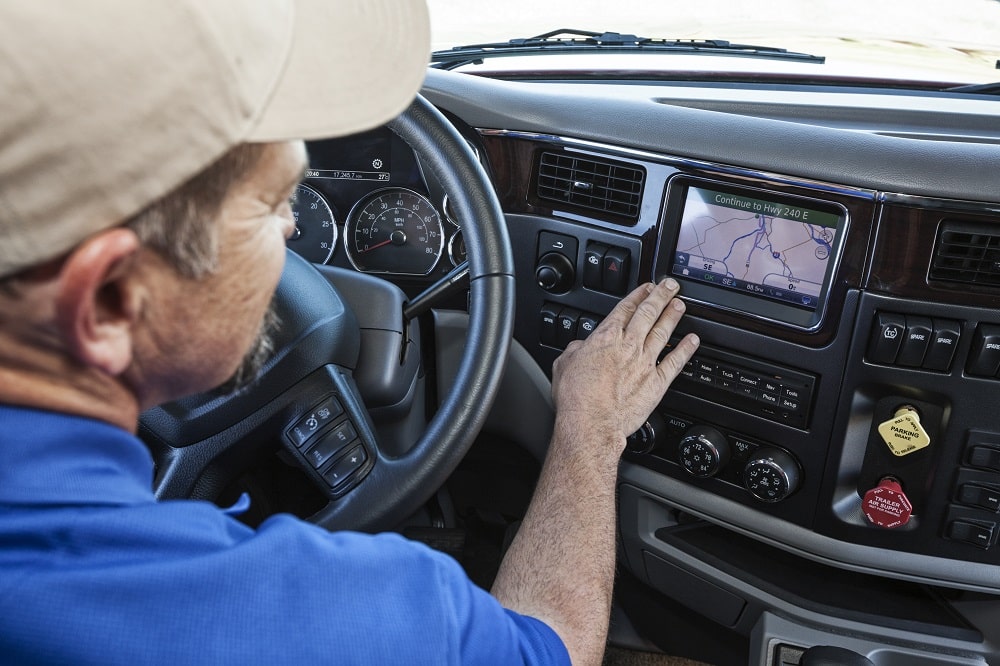
Transportation Digitalization
Transportation, not just in the U.S., but around the globe, is undergoing a digital transformation thanks to a handful of companies using new technologies to create value for customers and carriers alike. The result is that transportation companies will be able to do things tomorrow that they can’t even do today—and movers and shakers from the transportation industry agree that it’s happening faster than anyone imagined.
Since the transportation and logistics business is one of the world’s fastest-growing industries, it must adapt more than ever from long-standing practices to meet the difficulties of international trade. By 2026, it is expected that the worldwide logistics industry to be worth $16.445 billion.
What is digitalization in transportation?
Transportation digitalization is a broader term that refers to the use of electronic means, such as computers and smart devices, to facilitate the collection and exchange of data in the transportation sector. Digitalization in transportation is helping to improve the efficiency and safety of transit systems and private vehicle fleets by providing real-time updates, enhancing customer experience, and increasing transparency.
The role of digitalization in transportation technology has become more apparent as mobile devices have proliferated among consumers. In automobile fleets, for example, digitalization allows for remote monitoring, so businesses can inspect vehicles remotely rather than checking each vehicle manually. Digitalization enables transportation companies to improve processes by increasing visibility into supply chains and allowing companies to identify areas that need improvement.
Digitalization has allowed for increased operational efficiency through automation and improved routing of shipments. This has been achieved through machine learning forecasting techniques and algorithms used to predict where demand will be highest based on historical data. With this insight, companies can plan more effectively.
How transportation and logistics services are benefiting from digitalization
While physical delivery is required for transportation services, digitalization is revolutionizing the sector throughout the transportation supply chain in many ways.
The Internet of Things, AI, new energy, and Big Data drive this transformation. Everyone in the industry has a shared vision: to provide safe, reliable, and efficient services to customers. Consequently, the digitalization of the transportation industry is a necessary step in achieving this goal. Here are some of the most important benefits of Transport Digitization.
- Vehicle/ship design
- Infrastructure: rail, ports, roads, bridges, tunnels, and terminals
- Transportation operations (e.g., capacity allocation, cargo management, shipment tracking and tracking, customer service, and so on).
- Supporting services: monitoring, warehousing, and inspection
- Transport equipment maintenance and repair
- Information and document transmission among multi-players (shippers, shipping lines, port authorities, Customs, terminal operators, and so on).

Characteristics of digital trends
- Improved, excellent connectivity; Smooth operations
- Higher levels of automation; reduced margin of error
- Internet of Things, cloud computing, big data analytics, automation and robotics, and artificial intelligence are the most common digital technologies and solutions.
- Digital platforms have evolved into a new business model that enables innovative transportation services, more effective service delivery, and more service credibility.
- Both corporations and authorities are adopting a data-driven strategy.
- Digital synergies between transportation/logistics services and other service sectors: The digital transformation of transportation and logistics services relies on the support of other services, but it also accelerates the advancements of those services, such as telecom, CRS, construction and engineering, energy, environment, and other business services.
- Transport Digitalization can improve profits and customer satisfaction.
The industry itself is vast and highly diversified, with countless sub-sectors and modes of transportation. However, three major internal forces drive the transformation: improving customer experience, increasing business agility, and increasing operational efficiency.
Freight Transportation Digitalization in Different Forms
Goods
|
Infrastructure
|
Conveyances
|
Business Processes
|
Digitalization and the future of transportation!
The transportation industry has grown significantly over the decades and is an important area for improvement. Technology plays a huge role in keeping the industry moving forward to meet growing demands. This is why the digitalization of this sector is so important. As efficient as it already is, the industry can become even more effective with technology. It’s exciting to see what future innovations hold for the transportation industry.
In addition to the benefits, digital transformation also creates a new business model. It allows organizations to build more efficient transportation processes. As a result, the company can improve its profitability by increasing efficiency and reducing costs. The digitalization of the transportation industry is a critical trend shaping the industry’s future. For example, the integration of new technologies has boosted efficiency. A digitalized transport infrastructure will be more responsive to its customers and more affordable to them.
A digitally-driven business is a win-win situation. Its implementation will ensure the future of transport. Not only will it create new opportunities for companies but it will make the transportation industry more competitive moving forward.
To wrap things up
It’s become clear that transportation companies should be looking to digitalize their business practices – whether they operate across thousands of miles or within their neighborhood. The only questions are which direction you choose to go in and how your decision will affect your business for years to come. These are fundamental questions, and you owe it to yourself to give them due consideration before making your decision.
Short term, you can use technology to your advantage, But in the long term, your only choice is to embrace technology. If you haven’t already started to implement digitalization, now is the time to strike and go digital with one of the leading transportation services providers such as TMS Digital.
TMS Digital suite of logistic software includes Dispatch, Tickets, IFTA Manager, Equipment Maintenance, a Drive Safety package, and more! Imaging, EDI options, and email triggers help keep you paperless. With our 3rd party APIs and interfaces, Mobile applications, and remote access to the cloud, we can help you bring your business into the future! In addition, we would be remiss if we did not tell you about our highly configurable and customizable options. Contact us today to learn more!





